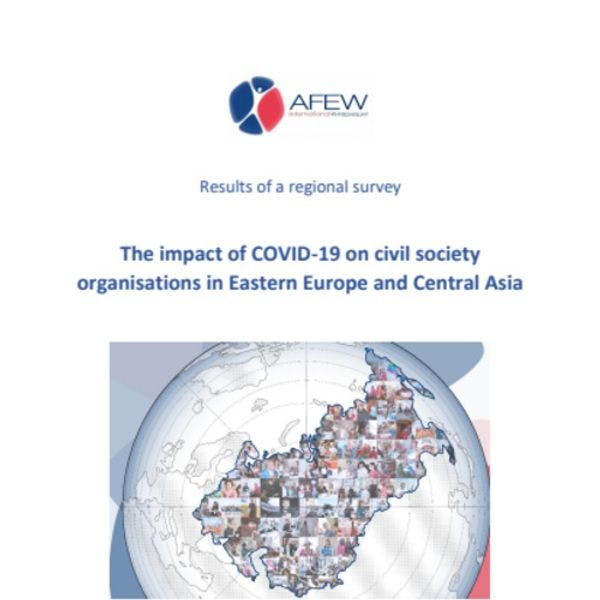L'impact du COVID-19 sur les organisations de la société civile en Europe orientale et en Asie centrale
L'enquête d'AFEW met en lumière l'impact de la pandémie du COVID-19 et des restrictions sur la société civile en termes de santé du personnel, de fonctionnement et de durabilité. Pour en savoir plus, en anglais, veuillez lire les informations ci-dessous.
In August 2020 AFEW International conducted a questionnaire among Civil Society Organisations in Eastern Europe and Central Asia to measure the impact of COVID-19 on CSOs in the region. The results of the survey are now published in the report “The impact of COVID-19 on civil society organisations in Eastern Europe and Central Asia”.
The survey has revealed the significant impact of the COVID-19 pandemic and restrictions related to the pandemic on CSOs, in terms of the health of their staff members, the way of working and sustainability. Almost half of the respondents confessed that staff of their organisations tested positive for COVID-19, which shows that it had a very personal impact on them. The majority of the respondents experienced a lot of changes in their work, including the introduction of new ways of working, a reduction in face to face meetings, and the need to work from home, which also corresponds with other reports about the impact of Covid-19.
There were also two positive findings. Despite the insecurities caused by the pandemic, CSOs do feel that they will emerge stronger and more agile out of the COVID-19 pandemic; 66% of respondents see positive aspects in remote working. Many admit that their organizations have learned how to be strong as a team and flexible. Their experience in working with key populations has proved useful for dealing with a situation in which everyone is at risk. The survey revealed that CSOs have proved to be resilient and flexible in their way of working during the pandemic, with the majority of them (88%) adding new activities in response to COVID-19, and more than a third adding new target groups into their activities.
